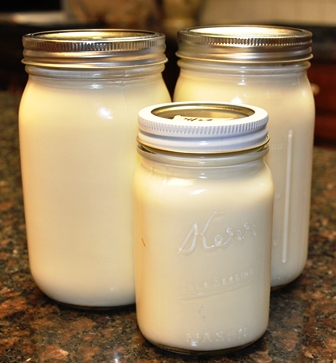AppleJo Farms Blog
ALPHA s1 CASEIN TESTING

ALPHA s1 CASEIN TESTING (All information comes from ADGA website)
If you are interested in this testing for your does or bucks, the request form can be found at the ADGA Forms page. Sampling is the same as for other DNA testing services. Sampling instructions. https://adga.org/performance-programs/casein-testing/
The α s1-casein is a protein polymorphism of goat milk first described in Europe, in the French Alpine and Saanen breeds, in the early nineteen eighties.
The Veterinary Genetics Laboratory located at the University of California, Davis makes such testing possible in the United States. ADGA members receive a discounted rate of $20 for this testing. The test is designed to detect low-level variants for casein – E, F, and N. High-level variants are then reported as A or B, which represent several specific alleles.
A report would appear as follows with Animal information:
ALPHA s1 CASEIN
RESULT = A/E
Interpretation of result code:
This test is designed to detect three variants of alpha s1 casein (E, F and N) that are associated with reduced content of this milk protein.
Variants, A and B, are associated with a high content of alpha s1 casein in milk.
Variants, E, F, and N, are associated with a lower content of alpha s1 casein in milk.
O1 represents a non-functional variant (“null”) that is associated with a lack of alpha-s1 casein production.
Any combination of A and B variants will produce high amounts of alpha s1 casein.
A combination of A or B variant with E, F or N variant will produce intermediate amounts of alpha s1 casein.
Any combination of E, F, and N variants will produce low amounts of alpha s1 casein.
Goats with two copies of the O1 “null” variant will not produce alpha s1 casein protein.
The test is not designed to detect subvariants of A and B.
The animal above (A/E), if a doe, would be expected to produce intermediate levels of the casein and pass on either the A or E to their offspring. The animal above, if a buck, would have daughters that would inherit either the A (high level) or E (lower level). The variant inherited from their dam would determine whether they were an intermediate or high-level producer of casein.
WHAT IS ALPHA S1 CASEIN?
The α s1-casein is a protein polymorphism of goat milk first described in Europe, in the French Alpine and Saanen breeds, in the early nineteen eighties. These polymorphisms have been found to affect cheesemaking due to differences in protein content, renneting properties (faster coagulation and firmer curd), and a possible connection in relation to cheese flavor. In one study, the results of research conducted on homozygous individuals for the various alleles confirmed the effects of genotype on the casein content in milk by showing the cheesemaking yield observed in milk produced by those animals with strong alleles was 7% higher in comparison with those with medium alleles and 15% higher than those with weak alleles. In addition, there have been studies that suggest that the genetic variation resulting in low or null levels could contribute to milk with a lesser antigenic burden and be of potential benefit to those with milk sensitivities.
ADGA has contracted with the Veterinary Genetics Laboratory, University of California, Davis, to provide the test at a discounted rate and is currently maintaining a database of results.
ADGA will maintain a list of approved testing laboratories, and that information as well as forms and instructions for sample submission will be provided upon request.
Testing done privately can be included in the database. There is a fee for the record transfer. Please refer to the schedule of rates.
Upon receipt of testing results from an approved laboratory, ADGA will maintain a database of Alpha S1 casein testing results. Upon breeder's request, Alpha S1 casein testing results will be included as part of the goat’s pedigree information and will become part of the animal’s permanent record in the ADGA pedigree database.
RATIONALE FOR POLICY
Knowing the specific genetic polymorphism at goat casein loci on breeding stock allows the breeder to set up breeding and selection programs targeted towards the improvement of cheesemaking yield by selecting for high expression alleles, or selecting for animals with low levels which may be of benefit to those with milk sensitivities.



Powered by Boutique Store Builder . Web Design by Avalon Rose Design.

